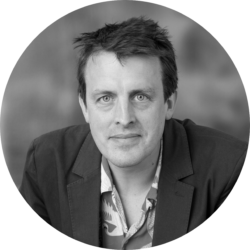Oligarchs take cover, in the West and in Russia
OLIGARCHS UNDER ATTACK IN THE WEST…
It is good news for the Western coalition seeking to strangle the Russian economy, that a judge upheld the U.K. sanctions imposed on Eugene Shvidler. Shvidler, a billionaire who has held senior positions in oil company Sibneft and metals giant Evraz, was designated by the U.K. last year because of his close relationship to Roman Abramovich. Had Shvidler won, it could have unleashed a torrent of similar appeals, at a time when the anti-Kremlin coalition needs as much help as it can get.
The judgment is careful and thorough and worth reading in full. (Although some observers may question the wisdom of the judge’s statement that “this is an area where the Courts have to defer to the judgment” of the foreign minister, considering that the minister in question in early 2022 was Liz Truss, who later that year became the most disastrous prime minister in British history.)
A U.S. and U.K. citizen, Shvidler was the first sanctioned individual to bring a legal challenge against his designation. Had he been successful, it would have been a major threat to the ability of the U.K. to run its post-Brexit sanctions regime and thus to the integrity of the West’s attempted blockade of the Russian economy. Shvidler’s lawyers at Peters & Peters intend to appeal though it’s hard to see much grounds for them to be optimistic, since they seem to be mainly asking for sympathy.
- “The impact of this on him and his family is extreme and far-reaching,” said Michael O’Kane, one of Shvidler’s lawyers. “If this judgment stands, it will make it virtually impossible for any person sanctioned by the Foreign Secretary to bring a successful court challenge.”
It is easy to sympathize a little with the plight of Shvidler’s family: two of his children lost their places at British private schools at important stages in their education and had to move to the United States, which means they rarely see their British-based mother, who lacks U.S. citizenship, and who is now herself struggling to obtain legal or banking services in the U.K.
However, the difficulties that Shvidler himself faces, though no doubt distressing for him, go straight past being #firstworldproblems to become a whole new hashtag of its own. Here, summed up, are his #oligarchproblems:
- “He can no longer access financial institutions he has used for many years; his registered agents in the British Virgin Islands have given notice of their intention to resign; his two private aircraft have been grounded, and he has been unable to pay the expenses necessary to ensure his private yacht is safe and seaworthy,” the judgment notes. Shvidler has also “had difficulty maintaining and insuring his properties in the UK,” forcing him “to make redundant a number of members of his household staff.”
How bad do you feel for Shvidler on a scale of 0 to not-very-sympathetic?
Reading the judgment did, however, reinforce my opinion that sanctions are simply no substitute for a rational, long-term, well-resourced approach towards the challenges to democracy posed by oligarchy, kleptocracy, financial crime and dirty money in general. Shvidler sat on the board of Evraz, where Abramovich is the largest shareholder. Also on the board sat Sir Michael Peat, previously principal private secretary to HRH the Prince of Wales. Evraz was listed on the main London Stock Exchange and, as a director, Shvidler was the nominee of a company registered in the British Virgin Islands. He had entered the U.K. as a “highly skilled migrant” in 2004, becoming a citizen six years later and giving millions of pounds in philanthropic donations to educational institutions. He was in short very welcome in the U.K. Until suddenly he wasn’t.
It all feels a bit like inviting someone to live with you, then refusing them access to the fridge because you’ve suddenly decided you don’t like a friend of one of their friends.
Throughout this period, all of the information that the U.K. government relied on to add Shvidler to the sanctions list in March 2022 was known. It was no secret that he was close to Abramovich, since he was vice president for finance at the oligarch’s oil company back in the 1990s. It was no secret either that Abramovich was close to Putin, who appointed the oligarch as governor of a remote Russian region. And it was no secret what kind of leader Putin was: his regime flattened Grozny, jailed opponents, had Alexander Litvinenko murdered, allowed insiders to steal vast fortunes, invaded Georgia in 2008, annexed Crimea in 2014, then invaded Eastern Ukraine and shot down MH-17 later that year, among many more crimes.
Of course, it’s good that Western governments responded to the full-scale invasion of Ukraine by attempting to isolate the Russian economy, and undermine Putin’s ability to wage war, but we should learn from this that we should never have stood by and watched Putin build his kleptocratic regime in the first place. Or allowed the oligarchs to so deeply infiltrate the West. The fact there was so much wealth available to be sanctioned is a sign of failure, not of success.
The Shvidler judgment is akin to being allowed to prolong the imprisonment-without-trial of someone arrested inside a fortress. It should not be grounds for self-congratulation, but should instead provide the impetus to urgently repair the fortress walls, to train people to defend those walls, to install equipment to prevent tunnels being dug beneath the walls, and to check if anyone on our side is taking money from our enemies. None of this is being done.
Incidentally, although Peters & Peters failed in their legal challenge on behalf of Shvidler, last month they did better for another client — Lev Khasis, formerly first deputy chairman at Sberbank, who has been removed from the sanctions list. The British government provided no reasons for why he had been de-designated, but it has previously been reported that Khasis fled Russia around the time of the full-scale invasion in February last year. According to the Miami Herald, he’s living in his $3.4 million condo in Miami.
…AND IN RUSSIA
Russia has launched a criminal case against its richest man, Andrei Melnichenko, for supposedly corruptly colluding with a government minister in his purchase of a power plant. This is confusing on the face of it, since government ministers in Russia are more than happy to corruptly collude with billionaires, but appears to be all part of the shifting dynamics of the war economy. Melnichenko has also been targeted in the West, and is sanctioned in Europe, in Canada, in the U.S. and in the U.K., so he may now be feeling a little squeezed.
I would not be surprised to see the case settled in return for Melnichenko handing over some share of his assets to the Kremlin, but it will be interesting to keep an eye on this one, as a pointer to whether oligarchs are able to retain their charmed positions despite being sanctioned. If Melnichenko can continue to hold his assets outside Russia — he has moved to the UAE, since being forced to leave Switzerland, according to the New York Times — then he is at least theoretically still able to act independently of the Kremlin.
ANTI-CORRUPTION COURT
What is stopping Western governments from adequately tackling dirty money? One of the key reasons I hear from officials and others is that the problem is so hard that, if adequate efforts were made to tackle it, they wouldn’t bring results until long after the politician who made them would have left office. Politicians want “announceables” — things that make good press releases — they don’t want to put in years of effort only for someone else to get all the credit.
People whose opinion I respect think an International Anti-Corruption Court (IACC) is the answer to this problem, since it would remove the fight against financial crime from the domestic political arena, and entrust it to a mighty multinational apparatus. And the suggestion is now winning support in the U.K., on top of previous backing in the Netherlands, Ecuador, Canada and among some U.S. lawyers.
- “Labour will join calls for the establishment of an international anti-corruption court. Designed to prosecute the most egregious acts of corruption. The kleptocrats, the most corrupt businesspeople and those who enable them. Labour is determined to clean up the London Laundromat at home and defeat kleptocracy around the world,” said David Lammy, who will be U.K. foreign minister if — as currently looks likely — the Labour Party wins next year’s general election.
The model is the International Criminal Court, which has brought cases and launched investigations into the most egregious violators of human rights in Central Africa, South America, Ukraine and parts of Asia. The IACC’s backers argue that a similar international court would provide equivalent accountability in places where governments are complicit in abusing their citizens via corruption.
But I think that comparison is flawed. The crimes associated with grand corruption are different to human rights abuses, which take place in a defined place in a single country and can thus be prosecuted like traditional crimes. Corruption is not like that. Kleptocratic networks are diffused all over the world, beginning in Russia, Angola or dozens of other countries, spreading through the Far East and the Caribbean, ending in the Gulf, North America or Europe. Some of these countries have robust courts and honest politicians, and some of them do not, but the money flows seamlessly between them. An International Anti-Corruption Court will make no progress in countries ruled by the corrupt and is not needed in countries that are not. In fact, backers of the project implicitly make this case, in their arguments.
- “London and U.K. overseas territories — from the Caribbean to Gibraltar — are infamous money-laundering hotspots, and our government should adopt a leading role in gathering global support for the IACC. The U.K. must also do much more to regulate lawyers, bankers, real estate, accountants and other financial advisers aiding money launderers, enforce laws against foreign corruption and enhance transparency,” wrote a former government minister in a column in the FT.
What’s to stop the U.K. or the U.S., or any other country which provides a haven for dirty money, tightening and implementing existing laws even without an IACC?
I worry that an IACC is in fact just another “announceable.” It sounds good in a press release but will achieve little more than delay and busywork for people who could be doing something more useful. What is needed is patient long-term investment in enforcing laws against corruption and financial crime to reduce the space available for kleptocratic networks to flourish; and for politicians to be willing to do that work, even if they do not get the credit for it.
WHAT I’VE BEEN READING
I have been on holiday for two weeks, swimming in lakes, stomping up mountains, sleeping in a tent and generally having a great time. I deliberately left my screens behind, except for my kindle, which I had packed with books to read. Sadly, however, one of my children decided he wanted to read it too and, loath to be seen to discourage him from reading, that left me with almost nothing to read for the entire holiday.
When I did get my hands on my Kindle, I read a couple of murder mysteries by P. D. James and I started The Omnivore’s Dilemma by Michael Pollan. Then my Kindle vanished once more, and I went back to cooking supper for the kids over the campfire, and hanging up their wet towels to dry. One day they will have kids of their own and I will have no sympathy. I’m looking forward to it.







